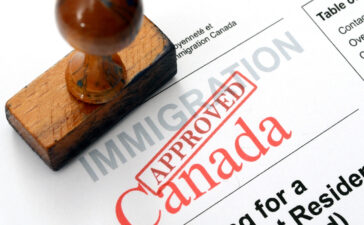If you are planning to immigrate to the UK, you need to know all the UK immigration laws. These laws govern the conditions under which foreign nationals can live and work in the country. You must meet certain requirements, including the ability to earn a certain amount of money and possessing a strong command of the English language. The following article will help you understand the different types of visas available to foreigners.
Short-term work visas
Working in the UK requires a visa, and non-EU nationals are no exception. However, there are several exceptions. Certain nationalities can enter the UK without a visa, including citizens of Australia, Canada, Japan, and the US. Others are exempt, such as diplomats, government ministers, and military personnel. Citizens of the British Overseas and Commonwealth countries are also exempt from visa requirements.
Depending on your nationality, there are different types of visas available. Temporary work visas are usually based on your profession. A Religious Worker visa, for example, allows you to work for a UK church for up to two years. A Domestic Workers in Private Household visa is available for individuals who want to work in the UK as domestic workers. These visas are usually valid for up to six months and may be required if you are unable to find a suitable job in your country of origin.
Student visas
The UK has changed its immigration laws to allow student visas from EU/EEA countries. EU citizens will need a visa to study in the UK, but this may change in the future. EU/EEA students will still need to apply for a student visa if they plan to stay for more than six months. In addition, student visas will become more difficult to obtain after the new immigration system goes into effect in January 2021.
In addition to the new immigration rules, students must follow their visa conditions. In addition to meeting the entry requirements, students must comply with the Immigration Office’s rules for study. In most cases, the university or college will have a duty of care to its students and the UK government. This duty is enforced by the Immigration Rules of the Home Office, and UAL will issue guidance for students regarding attendance and engagement requirements.
Point-based system
In February 2008, the UK introduced a new points-based immigration system, based on the Australian system. The new system replaced the previous system of 80 different visa types. But unlike Australia, the UK is a member of the European Union, so this points-based system applies only to people outside the EU. However, BREXIT might change that, resulting in a point-based system for all EU member states.
In Australia and Canada, a points-based system has moderate success in raising the skills of workers entering the labor market. But the system is not the best solution for UK immigration policy objectives, including limiting migration numbers. Moreover, a pure points-based system is costly. Point-based systems have disadvantages, which should be carefully considered before adopting one. If you’re considering a new immigration policy in the UK, consider the implications of Brexit on the existing system.
EU Settlement Scheme
If you are an EU national and have not yet settled in the UK, you can apply for EU Settlement Scheme status. Once you’ve applied, you will be given a digital certificate, which is not your immigration status in the UK. If you are successful, you’ll be given a limited period of stay, known as a pre-settled status, which is a form of residency that allows you to stay in the UK for a specified number of years before switching to settled status.
After the EU’s exit from the European Union, you may stay in the UK. After 30 June 2021, EU and EEA citizens can stay in the UK without a visa. Those citizens from Switzerland, Norway, Iceland, and Switzerland may also remain in the UK after this date. EU Settlement Scheme and UK immigration laws for foreigners




